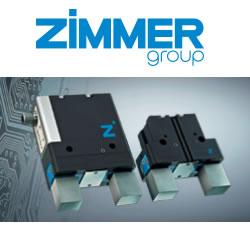Nearly all automation vendors rely on system integrator partners to take some percentage of their hardware and software products to market in the form of completely functional systems.
Survey of Control System Integrators
Bob Lowe | Control System Integrators Association
The first-ever survey of system integrators conducted jointly by J.P. Morgan and the Control System Integrators Association (CSIA) reached out to nearly 1,800 professionals worldwide in the automation and control industry. The results suggest that more manufacturers will look to experts like CSIA members for help in managing risk and automating their industrial equipment and systems. Among the industries driving the activity are automotive, oil and gas, food and beverage, chemicals and energy, according to the report.
What is your overall reaction to the responses of system integrators polled in this first-ever survey? Did any results surprise you or is the general consensus from them on the automation industry what was expected?
 I am very pleased with the participation of 217 companies, with 45% of them located outside of the US and Canada. So the survey results provide a global, comprehensive view of our industry, control systems integration. CSIA gained the information we hoped for.
I am very pleased with the participation of 217 companies, with 45% of them located outside of the US and Canada. So the survey results provide a global, comprehensive view of our industry, control systems integration. CSIA gained the information we hoped for.
In terms of surprises, it is mostly what I expected, both trends and demographics. But a few notable items are:
- The low rate of MES implementation by end-users.
- The focus by integrators on power, energy, oil and gas – both currently and going forward
- That more integrators are involved in process then discrete
- There are no “standouts” on the list of industries with weak activity levels
The J.P. Morgan/CSIA survey found that system integrators are a “key channel of the automation industry.” Could you tell us how and why they are critical player?
Nearly all automation vendors rely on system integrator partners to take some percentage of their hardware and software products to market in the form of completely functional systems. The percentage is typically 10-20% and that is a significant percentage.
Automotive, oil & gas, food & beverage, chemical and energy are the top end user markets in the automation industry right now. What’s driving the demand right now while other industries are struggling?
In general none of the above are tied closely to the construction market whereas many other industries are affected by construction. Water/Wastewater is steady.
Automotive – Car sales are up and auto companies are spending to automate. Automation lowers operating costs, raise quality and enables flexibility in their manufacturing. The lower costs are achieved through reduced labor, lower energy consumption and increased uptime & efficiency.
Oil & gas– Energy sources are increasing for both oil and gas so the US energy companies are leading us to energy independence and increasing jobs. Globally, a need for upstream and downstream systems that are safe, electronically secure and environmentally responsible are drivers too.
Food & beverage – Most food is processed locally and as with automotive, automation lowers operating costs, raises quality and provides flexibility.
Energy – Alternative energy is important and change is occurring in conventional energy markets due to, amongst other things, inexpensive natural gas in the US. Effective energy policies require automation to deliver the energy to consumers.
System integrators believe revenue growth will improve in the next six to 12 months. Why do you think they feel that way?
Order activity is somewhat stronger now than it was six months ago. We have seen a lot of pent-up demand as manufacturers put projects on hold. Two-thirds of the survey respondents expect the delayed projects to return, assuming there are no major economic shifts.
Could you share some of the comments on business trends from system integrators? What are they thinking for the industry beyond 2013?
Most of the respondents were from the U.S., and their comments reflect the collective weariness of the U.S. manufacturing industry right now. One respondent said: “Customers are barely keeping old legacy equipment running, but are holding back on upgrading due to the uncertainty. Our business outlook is still guarded optimism, despite the current headwinds.” I think that “guarded optimism” describes many respondents’ outlook
Share with us the benefits of using a CSIA Certified control system integrator and the other resources CSIA members can offer the robotics industry.
CSIA Certified integrators reduce the risk of failure and improve the probability of success for their clients by having excellent business practices. Included in the business practices that certified integrators have are project management, system development lifecycle management, financial management and quality assurance management. Technical ability alone is insufficient to serve clients. Most integrators are started and run by people with good technical skills but business skills are lacking – it takes both to serve a client well.
Other resources that CSIA offer are our website which has a section for clients to learn about the systems integration industry and how our members can help them. Additionally, a client can use the Find an Integrator feature on our website to find an integrator that meets their requirements.
 About Control System Integrators Association
About Control System Integrators Association
The Control System Integrators Association (CSIA) seeks to advance the industry of control system integration. CSIA helps members improve their business skills, provides a forum to share industry expertise, and promotes best practices for business management. Member companies that become CSIA Certified have demonstrated the highest level of professionalism and excellence.
Founded in 1994, CSIA is a not-for-profit, global trade association for control system integration companies. CSIA has more than 400 member firms in 27 countries.
The content & opinions in this article are the author’s and do not necessarily represent the views of RoboticsTomorrow
Featured Product

